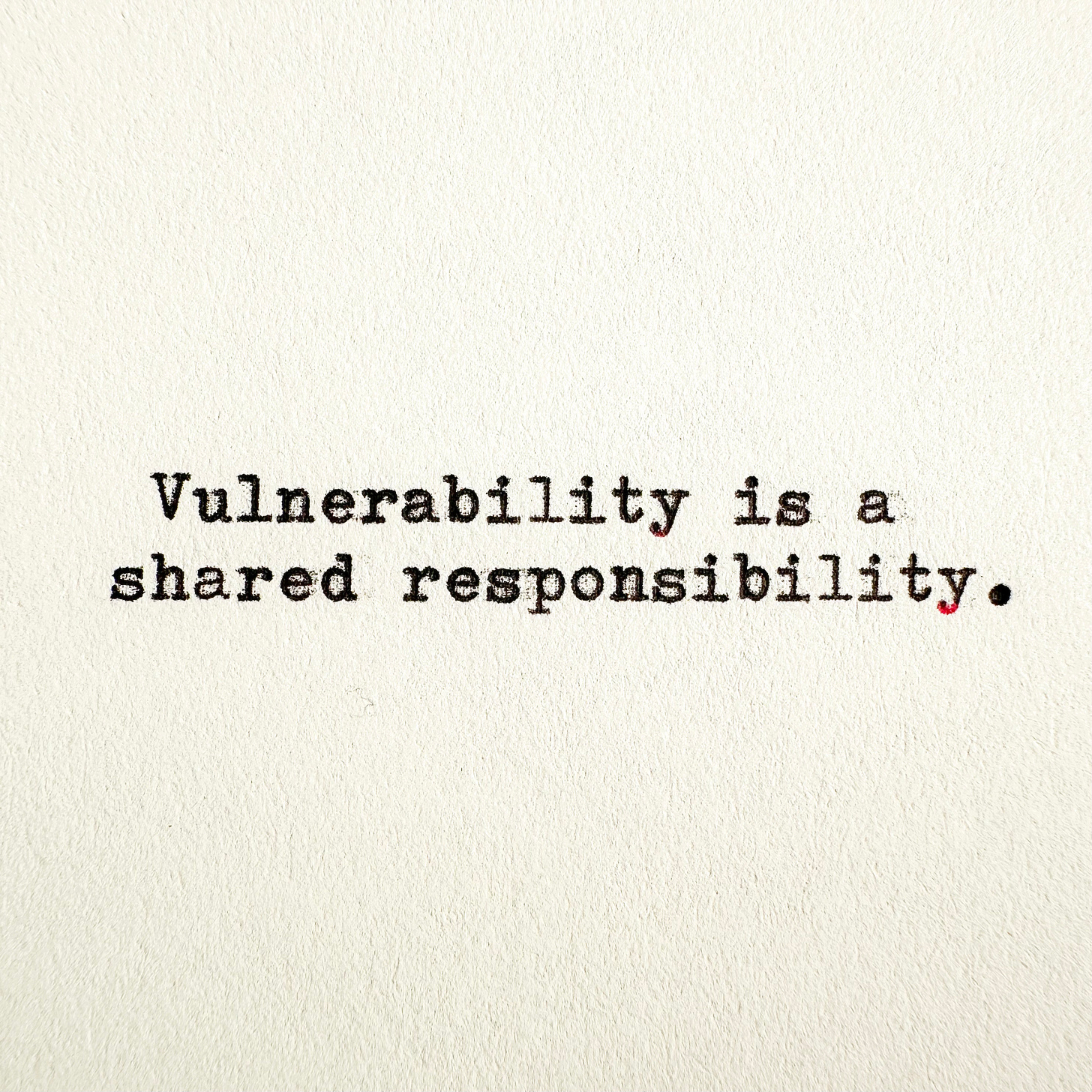Vulnerability is a shared responsibility
Quick thought for a Friday: vulnerability is a shared responsibility.
We often encourage people to "be vulnerable" as if it's a simple, one-sided act of courage, a necessity for personal growth and well-being, or a primary way to improve a deficient emotional intelligence.
Yes, each of us carries the responsibility to share ourselves with others—including our fears, truths, and pain—in order to receive the connection, intimacy, and healing that vulnerability can offer.
But just as important—and often ignored—is that for vulnerability to be a positive experience, we have a responsibility to receive someone's vulnerability in a way that makes them feel seen, heard, and safe.
The current cultural narrative frames vulnerability as universally good, as if it always leads to closeness with others, healing, and personal growth. But we need to remember that the definition of vulnerability means “to be susceptible to physical or emotional attack or harm”, and for many, vulnerability has caused them harm in the form of rejection, being dismissed, mockery, betrayal, or shame.
It’s been punished, not rewarded.
Often, our reaction to someone opening themselves up to further harm has caused further harm, meaning that *we* are responsible for the walls they've built, and in those cases, it’s the very definition of gaslighting to make those walls their fault.
When someone chooses silence over sharing and self-protection over openness, it’s not always a character flaw—it might be a rational response to a world that has shown them that their truth isn’t safe with others.
Vulnerability isn’t an individual act, but a partnership; a mutual responsibility we have to love, care for, and support one another.





